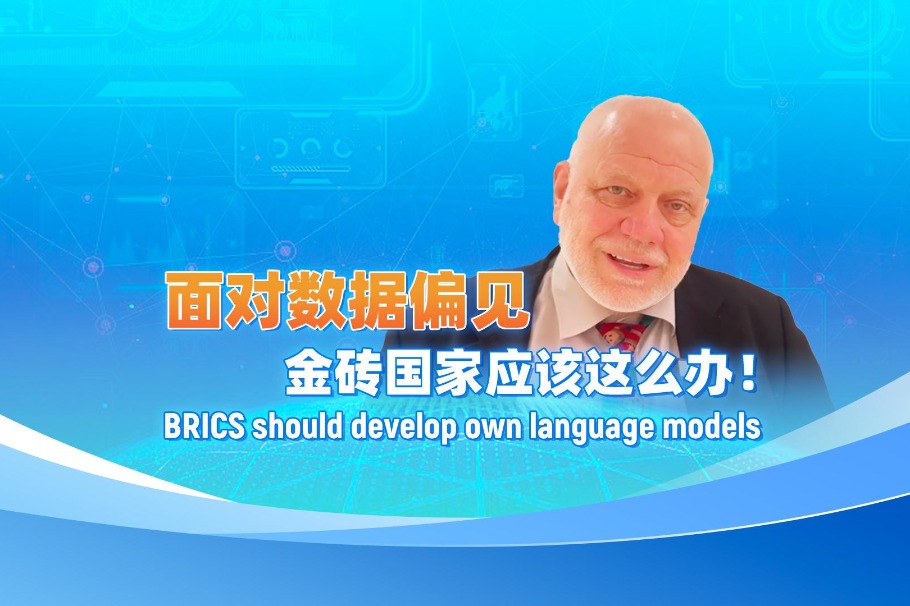Overcapacity or over-competitive China


For nearly 40 years, from the time the "Washington Consensus" took shape till the start of the Donald Trump administration, the US led the West in proclaiming the wonders of free trade. Playing by the rules was to take measures according to the tenets of that paradigm. Hence, open market competition and the central role for supply and demand in determining the prices of goods and services were to be accepted by any country expecting to be treated as a respected member of the global community.
Washington Consensus refers to a set of economic policy recommendations for developing countries, Latin America in particular, which the International Monetary Fund, the World Bank and the US Department of Treasury agree on.
According to the Washington Consensus, if demand exceeds supply, prices would adjust upward, thereby reducing demand and encouraging an increase in supply. In contrast, if supply exceeds demand, prices would adjust downward. If at the new lower prices, some enterprises could not make profit, they would disappear, making way for the most efficient ones to thrive and consumers to reap the benefits of higher consumption at a lower price. Any attempt to hinder these dynamics, say, by means of import tariffs or quotas, or voluntarily agreed export restraints, would undermine the advantages of market competition regarding the productivity of the factors of production and consumers' welfare in both the exporting and the importing countries.
Within the context of the paradigm, the concept of "oversupply" is a non-starter, except as a very short-term event in exceptional cases in which, due to lack of information, prices did not adjust downward as soon as supply exceeded demand. That was the lesson and those were the rules to be guided by. Price and quality competition, and free trade had all the answers.
But then Chinese enterprises became so efficient, competitive and technologically advanced in some sectors that they started to outperform some Western enterprises and take increasing market shares. This led to massive trade surpluses vis-à-vis most Western economies and with other countries that were traditionally the realm of those economies. As such, the free trade paradigm became a nuisance for the US-led West, which had propagated it in the first place.
As China, following the rules, became an unprecedented economic success, the developed world started accusing it of violating intellectual property protection rights, dumping, posing a threat to other countries' national security and, of late, oversupplying due to overcapacity, which, according to US Treasury Secretary Janet Yellen, "can lead to large volumes of exports at depressed prices".
Even if that were the case, what is the problem? "Depressed" prices with respect to which prices? Those of less efficient Western enterprises? Consumers in China and the rest of the world, including those in the US, would benefit from lower prices, won't they? If those supposed "depressed" prices is the result of higher productivity and efficiency, then what the Western enterprises should do is to get their act together and become more competitive. That is the essence of the economic paradigm intensively advocated by the West and even imposed, through the Washington Consensus-induced cross-conditioned lending, on developing countries facing dire financial problems.
If prices are depressed because of overcapacity derived from Chinese enterprises' willingness to lose money, that is the latter's problem and, for sure, of no concern to third parties. But if indeed there is overcapacity and depressed prices and if they are the upshot of the Chinese government's support policies aimed at increasing exports, as Yellen has suggested, some remarks are called for.
First, we should be grateful to China for channelling its taxpayers' money to allow consumers in the rest of the world, including in the US, to improve their standard of living by enhancing the purchasing power of their incomes. In particular, consumers of the Global South, should be happy and grateful that thanks to Chinese enterprises, they are able to buy from China at "depressed prices" instead of having to buy more expensive goods, for example cars, from Western manufacturers.
Second, and more important in the context of Yellen's remarks, since 2017 the US has implemented a number of policies to strengthen US enterprises through import tariffs and taxpayer-funded subsidies and grants. This "visible hand" of the US state became visible soon after Trump assumed power in January 2017 and has continued the manipulations, with even greater zeal, under the Biden administration. The Inflation Reduction Act of 2022, along with other bills, is an apt example of that.
Billions of dollars of grants are being given to US companies and those from friendly countries relocated to US soil. The policy's explicit objective is to blunt Chinese enterprises' market edge in some advanced technologies. Paradoxically, it is expected to achieve that objective not through competition and free trade but via the very strategy which China is being accused of using.
And, third, China has played a substantial role in increasing consumption over the last four decades and more. By lifting over 800 million people out of poverty, an achievement unprecedented in history, China has boosted global demand far more than any of the economies that are accusing it of overcapacity. Is it not audacious for those countries to blame China for eventual market gluts?
The truth is that, in the face of China's highly competitive economy, some countries are desperately trying to find ways to check its development. The explanations tossed as vindicators of trade defensive measures have ranged from China's supposedly low environmental and labor standards to likely national security threats to the urgency of preventing a socialist model from emerging victorious (never mind the fact that market reforms are at the core of China's economic success, as Yellen herself has rightly stated). Overcapacity seems to be only the latest excuse.
Yet if China or any other country had overcapacity in drugs or weapons, then it would deserve the cursing of the rest of the world. Depressed prices on such goods will end up causing addictions, wars and deaths. But being from a country like Costa Rica, I welcome the oversupply of products such as electric vehicles, because they are tools to mitigate climate change (the same is true for solar panels), their "depressed" prices and such a market solution to the "problem".
The author is a professor at Instituto Empresarial University in Spain, a senior fellow at the Beijing Club for International Dialogue and was special adviser to the president of Costa Rica from 2018-2022. The views don't necessarily represent those of China Daily.
If you have a specific expertise, or would like to share your thought about our stories, then send us your writings at opinion@chinadaily.com.cn, and comment@chinadaily.com.cn.

































